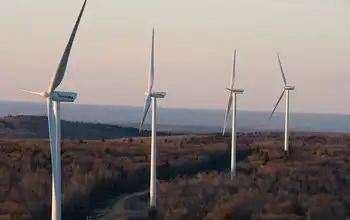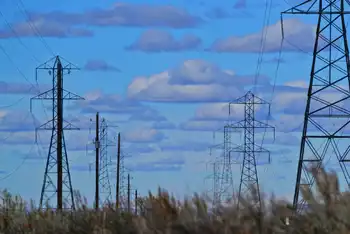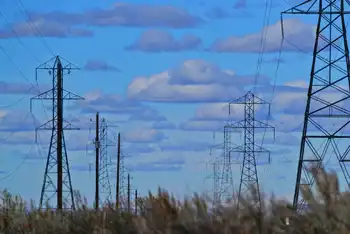Farm Power generates energy for PSE customers
The dairy digester is capable of producing up to 750 kilowatts of electricity – or approximately the energy needed to power 500 homes – and will provide electricity to PSE’s Green Power Program.
“Our environment, and our tradition of family farming in the Skagit Valley, both demand new ways of solving old problems,” said Kevin Maas, 33, a former high school teacher who founded Farm Power with his brother Daryl, 31, in 2007. “Our Rexville dairy digester is the result of many state, community and business leaders coming together to help turn our vision of a renewable energy facility into a new source of opportunities for Skagit County farmers.”
Farm PowerÂ’s expected annual electricity output of approximately 6,000 megawatt-hours will go exclusively to PSEÂ’s Green Power Program, which allows the utilityÂ’s customers to sign up to have some or all of the equivalent of the energy needs be purchased on their behalf by the utility from certified renewable energy producers. With more than 24,000 participating PSE customers, the Green Power Program is among the largest of the nationÂ’s 600 similar efforts.
On September 15, the program was recognized by the U.S. Department of Energy and Environmental Protection Agency for its role in spurring the development of new sources of energy including biomass, such as the Farm Power digester, as well as solar and wind projects around the Pacific Northwest. The energy projects supported by the Green Power Program are separate from — and in addition to — the renewable energy projects of PSE, which is the Pacific Northwest’s first and the nation’s second-largest utility owner and operator of wind power according to the American Wind Energy Association.
“Renewable energy does more than help secure the future of our environment, it brings new opportunities to Skagit County and other communities served by PSE,” said Steve Reynolds, PSE president and CEO. “Our Green Power Program customers can be proud of knowing that by choosing renewable energy they are playing a key role in making local, projects such as Farm Power possible.”
The Farm Power site is located west of Interstate 5 and just north of the Skagit River in Rexville. It will utilize the manure of two neighboring dairy farms, along with other agricultural waste products such as spoiled fruit and cheese whey, as well as remnants from chicken processing. In addition to producing electricity, the dairy digesterÂ’s other environmental benefits include reduced odor, a lowering of residual nitrogen in field-applied manure and the production of fiber bedding for use on the farms.
“Kevin and I grew up in Skagit County, and we want the next generation to experience local farming in our community just like we did,” said Daryl Maas, who joined his brother after serving in the Air Force. ”We are thrilled to partner with dairy farmers who are constantly making their own long-term investments in local economic development, and we look forward to helping make their operations more and more sustainable.”
The Maas brothers credit state senator Mary Margaret Haugen (10th district – Skagit County) and Gov. Chris Gregoire for their support, including a $500,000 grant from the Washington State Department of Commerce as well as the passage of legislation that fostered their project and other alternative energy programs in Washington.
“Washington is already a clean tech leader,” said Governor Gregoire. “Farm Power provides another example of our state’s progress towards a prosperous future of clean energy and green jobs.”
Daryl Maas notes that the two neighboring farms providing manure to the digester, Beaver Marsh Farms and Harmony Dairy, are owned by the sons of families they have known since grade school. For his part, Kevin Maas credits the MBA in sustainable business he attained at the Bainbridge Graduate Institute for much of what it took to make their dream a reality. “I had to learn as much about accounting as I did about renewable energy,” he says. “Having 24,000 enthusiastic customers in PSE’s Green Power Program was a vital part of getting our project financed and built.”
State agricultural leaders welcome the Farm Power dairy digester as a means of aiding local families. “Washington’s dairy farmers are working harder than ever to survive the difficult economic conditions challenging our industry,” said Steve Matzen, general manager for the Washington Dairy Products Commission. “Innovative technologies like methane digesters add to farm income by turning manure into clean electricity, fiber bedding, and other environmentally friendly outputs.”
Like a number of other digester projects across the country, Farm Power received a grant and loan package from the USDA Rural Energy for America Program. A $500,000 grant from the federal agency added to equity contributed by local investors, while $2.1 million in USDA loan guarantees covered long-term borrowing from ShoreBank Pacific. “The hard work of our regional USDA representatives and ShoreBank lenders was absolutely key to financing this project,” said Daryl Maas. “They followed through on their commitment to rural energy with sustained cooperative effort.”
Related News

U.S. Department of Energy Announces $110M for Carbon Capture, Utilization, and Storage
WASHINGTON - The U.S. Department of Energy’s (DOE’s) Office of Fossil Energy (FE) has announced approximately $110 million in federal funding for cost-shared research and development (R&D) projects under three funding opportunity announcements (FOAs). Approximately $75M is for awards selected under two FOAs announced earlier this fiscal year; $35M is for a new FOA.
These FOAs further the Administration’s commitment to strengthening coal while protecting the environment. Carbon capture, utilization, and storage (CCUS) is increasingly becoming widely accepted as a viable option for fossil-based energy sources—such as coal- or gas-fired power plants and other industrial sources—to lower their carbon dioxide…




